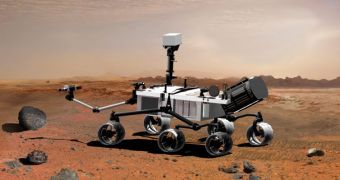Yesterday, November 17, the leaders of some 27 space agencies from around the world met in Washington DC to discuss issues related to the future of space exploration. The officials wanted to agree upon the course humankind should take on this matter.
Such discussions are extremely important because it is currently becoming clear that no single nation can support extensive space plans on its own. This is very clear in the case of nations that have had space programs since the get-go.
Both the United States and the Russian Federation have been constructing rockets and spacecraft, and have been sending people to space, for decades, but the costs associated with doing so are huge.
Plus, the benefits of cooperation were made apparent as the International Space Station began being built. The agencies involved in supporting it couldn't have constructed such a facility on their own.
Recognizing this, the leaders of international agencies involved in exploration met at the Heads of Space Agencies Summit, which was held to mark the 50th anniversary of the International Academy of Astronautics (IAA).
Participants discussed a number of four main topics, which covered issues related to human spaceflight, robotic space exploration, climate change and disaster management, Space reports.
The attendants wanted to explore avenues of international cooperation in these matters, and to see whether international bodies to govern these aspects should be set up or not.
But most of the agencies face “issues almost all countries are grappling with, such as changing national priorities and stagnant budgets,” explained after the meeting NASA Administrator Charles Bolden.
“NASA has been actively working with many of the space agencies attending the summit to further our common understanding of exploration and establish global partnerships,” the official went on to say.
Former Indian president Abdul A.P.J. Kalam and former Ukrainian president Leonid Kuchma also spoke at the meeting, as did former Romanian astronaut and the current chairman of the United Nations' Committee on the Peaceful Uses of Outer Space, Dumitru-Dorin Prunariu.
“NASA recognizes that exploration beyond low-Earth orbit will involve the coordination, cooperation and support of other countries,” Bolden added at the conference.
“I can assure you that as we look to the future, international cooperation will continue to be a cornerstone of NASA's exploration activities,” he concluded.

 14 DAY TRIAL //
14 DAY TRIAL //